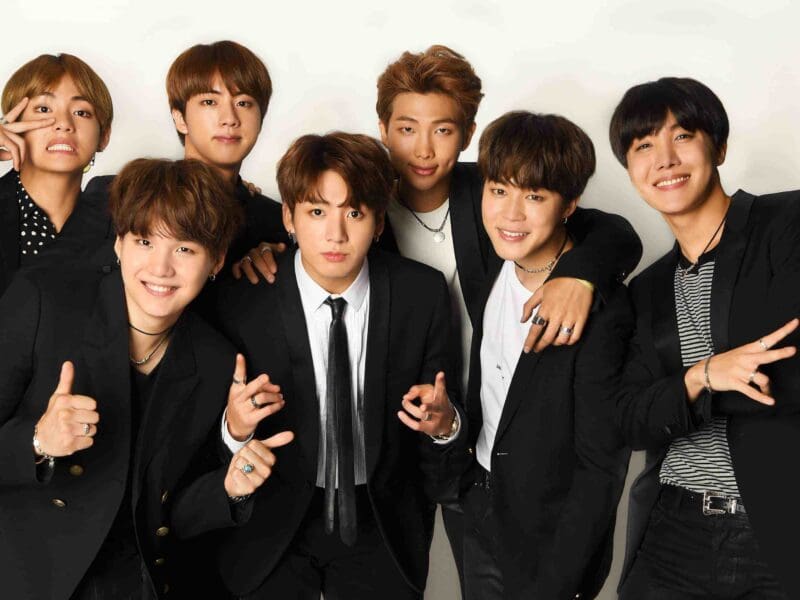
Spreading outside the U.S.: All the international QAnon news outposts
Well, the conspiratorial cat is out of the bag. QAnon’s days as a solely U.S. fake-news phenomenon are over. The conspiracy theory’s foothold in Japan — home to one of its most active networks outside the U.S. — shows how the movement has become acceptable in other countries as it gains international popularity.
Research news from social media analytics firm Graphika Inc. shows the Japan-based QAnon community is among the most developed international chapters, with distinct terminology, influencers, & behaviors — such as idolizing Michael Flynn, a former U.S. national security adviser in the Trump administration.
Like its U.S. counterpart, Japan’s QAnon community centers on the unsupported news that Donald Trump is battling to save the world from a cabal of pedophiles, including Democrats and “deep state” agents. While it’s hard to estimate the size of QAnon’s following in any country, data from Google Trends show a sharp rise in Japanese interest in QAnon from late March to early April 2020.

Japanese juxtaposition
In an email interview with Bloomberg, Eri Okabayashi who runs the most followed Japanese QAnon handle described herself as a university graduate from “a medium-sized city in Japan” who has never lived abroad but taught herself English by watching U.S. television shows & news. A few months after she started a Twitter account in January 2019, she was invited to join “a group of well-known QAnons”.
Okabayashi said her interest in QAnon stemmed in part from deep-seated doubts about Japan’s approach to women & motherhood. Economists have long warned that Japan’s low birth rate and shrinking population could spur a demographic crisis, as the labor force diminishes in a country with one of the world’s longest life expectancies.
“I was convinced that a country that does not allow women in their twenties of childbearing age to focus on childbirth & child rearing will eventually die,” Okabayashi stated.

Social stance
Both Twitter and Facebook are rolling out responses designed to limit the amplification of problematic posts, ranging from content warnings to removing certain posts. Facebook highlighted a public statement on its QAnon policy that outlines a full list of measures, saying “QAnon messaging changes very quickly and we see networks of supporters build an audience with one message and then quickly pivot to another.”
A spokesperson for Twitter – the more dominant platform in Japan, where it has more users than any other country outside the U.S. – said, “We have strong and dedicated teams of specialists who provide 24/7 global coverage in multiple different languages, and we are building more capacity to address increasingly complex issues.”

To Russia with . . . misinformation
According to The Moscow Times, Aleksandra Arkhipova, an anthropologist at the Russian Presidential Academy of National Economy and Public Administration who tracks the spread of online conspiracy theories, has found that while there is less news about QAnon on Russian-language social media than COVID-19 denialism & 5G fears, its acceptance is spreading.
News gathered by Arkhipova since August shows thousands of Russian-language social media posts about QAnon. On VKontakte & Telegram — an encrypted messaging service popular in Russia – groups dedicated to spreading the conspiracy theory in Russia have grown to include tens of thousands of members.
“More than half of QAnon-spreading accounts have over 500 followers,” says Arkhipova. “That would suggest the theory meets with a degree of social acceptance, and that people are not afraid to cite it and even see themselves benefiting from sharing it.”

Epidemic expansion
QAnon’s expansion into the Russian-speaking world is part of a worldwide surge in conspiracy thinking that has been linked by some experts to the COVID-19 pandemic. In Russia, where the fallout has pushed unemployment to an eight-year high, the crisis has fuelled widespread unfounded news that vaccines, masks and the coronavirus itself are being deliberately pushed by sinister forces to control the population.
“In Russia, QAnon is overwhelmingly associated with opposition to mask mandates and other public health measures,” said Arkhipova. Many Russian QAnon believers who spoke to The Moscow Times credit what they see as a fake pandemic with their adoption of the conspiracy theory.

Coronavirus consequences
The spread of QAnon globally could have real-world consequences such as decreased uptake of COVID-19 vaccines as more and more people see public health advice as part of “some kind of larger sinister plot,” said Chloe Colliver, head of digital policy & strategy at the London-based Institute for Strategic Dialogue.
“Broadly, the spread of QAnon & conspiracies run the risk of diminishing trust in national and international institutions in any context in which it activates,” Colliver said.







